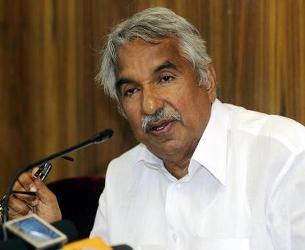Telecom Lead India: Kerala’s Startup Village is set to become the world’s largest telecom incubator soon.

The Kerala government announced expansion to the telecom incubator.
The Startup Village will have an additional space of 25,000 sq ft by May 12, 2013 and the remaining 75,000 sq ft will be allocated by January 12, 2014.
“This will make the Startup Village the world’s largest telecom incubator. We will further strengthen the entrepreneurial ecosystem to accelerate this transformation by providing infrastructure in the form of a TIZ (Technology Innovation Zone) in about 10 acres of land in Kochi with an initial investment of Rs. 100 crores,” said Kerala Chief Minister Oommen Chandy.
The Kerala government will also announce its Student Entrepreneurship Policy within 30 days. The new policy provides 20 percent attendance and 4 percent grace marks to students engaged in entrepreneurship during their study.
The waves of computing like personal computer revolution in the 1970s and ’80s saw the emergence of Apple and Microsoft. The Internet revolution spurred the birth of companies like Yahoo and Google. During the Social Networking revolution, global giant Facebook was born.
“The key link between all these companies was that the founders of these companies were college students,” said Sanjay Vijayakumar, CEO of MobME Wireless Solutions.
Out of the Nasscom Top 10 Emerge Product Companies, four have founders from Kerala. Startup Village received over 250 applications in the last five months since its inauguration by Infosys co-founder Kris Gopalakrishnan. It is now trending to cross 900-1200 applications in the next 9-12 months showing the underlying surge for entrepreneurship in Kerala college campuses.
TIZ is proposed to host more initiatives like the Startup Village on a PPP mode in other technology areas and verticals in Telecom, Data Analytics, Animation and Gaming, VLSI, Nanotechnology and Biotechnology. The zone will provide space at a low cost to the startup companies, which would have to pay only the operational cost. Government will manage the infrastructure and the innovator units will have 100 percent operational freedom to pursue their novel ideas and graduate into independent businesses.
InMobi founder Amit Gupta said it was a defining moment for promoting entrepreneurship. “Rather than doing academic projects in the final year where most of the students don’t achieve much, starting a company will help them significantly in their learning. This will foster culture of innovation, team work, risk taking appetite and ability to think big that will help our country leap forward.
“By encouraging our students to be entrepreneurial, we change how they think. That skill and initiative makes them more effective as members of any team – not just small companies. I hope that other states take a leaf out of this book and encourage entrepreneurship nationwide,” said Ashish Gupta of Helion Advisors.






